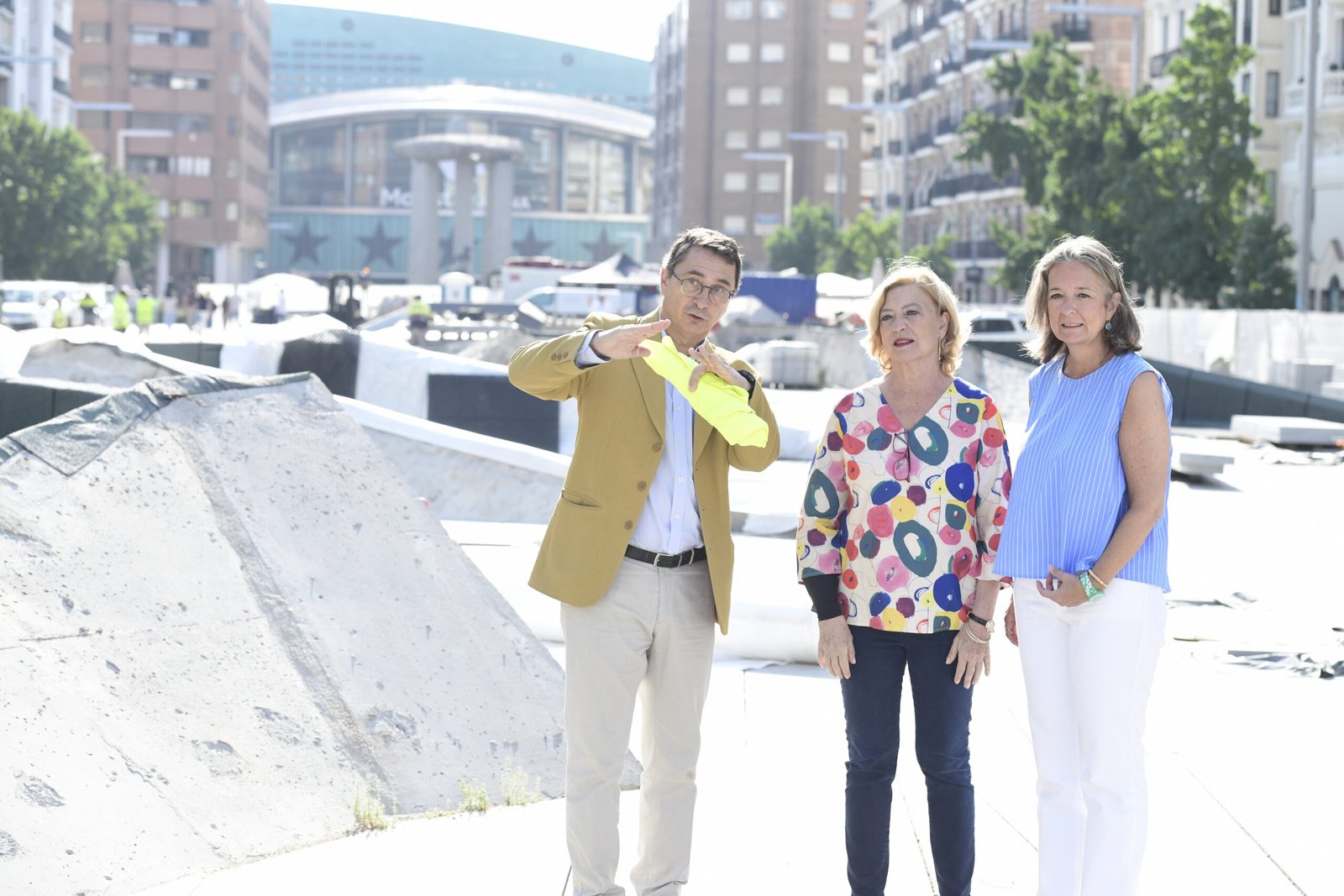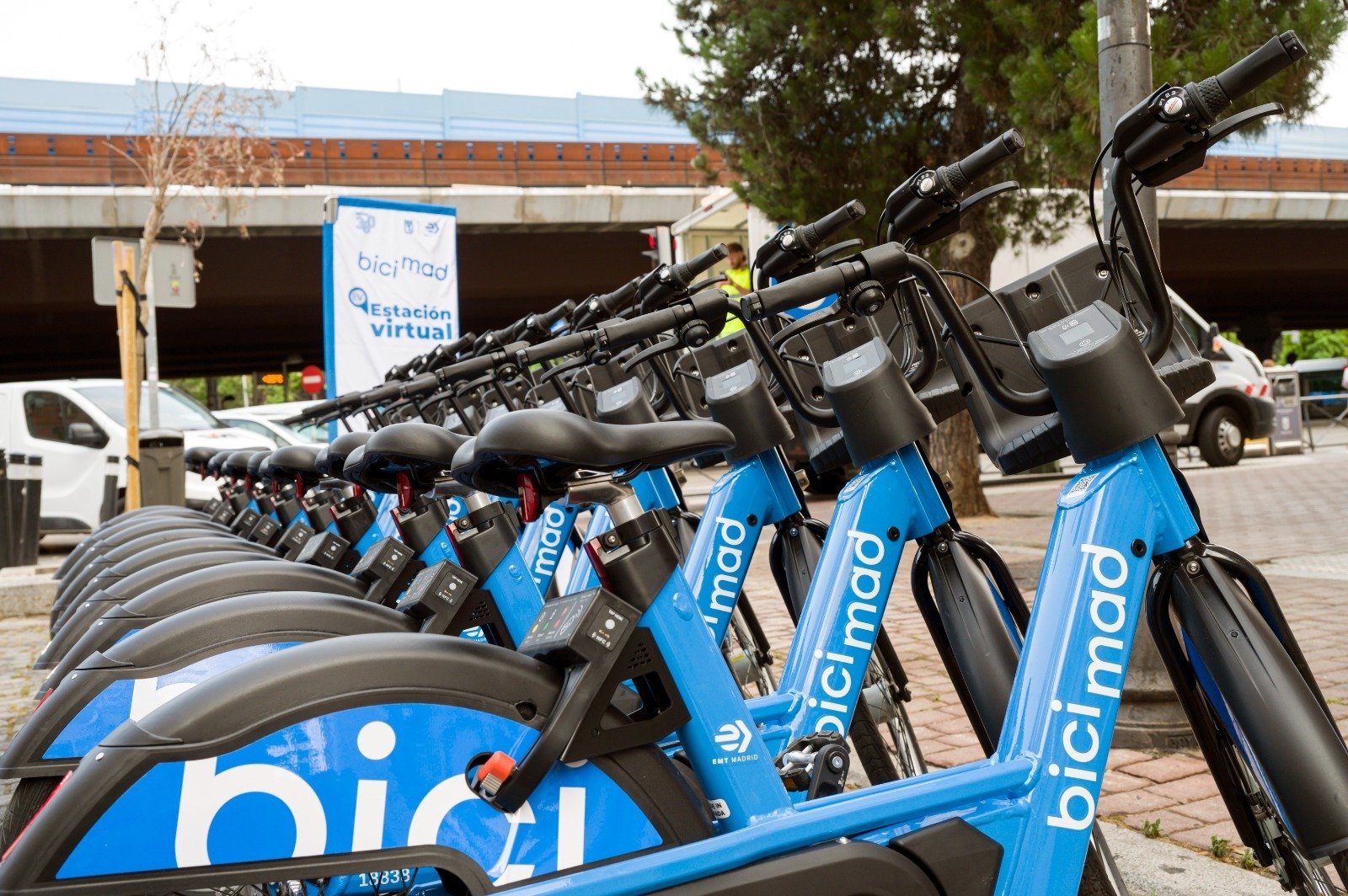The City Council of Madrid has selected this morning the eight startups that will carry out the proposed solutions for the challenges of DesafIA Madrid. The program, promoted by the Delegated Area of Innovation and Entrepreneurship, aims to promote the implementation of disruptive technologies to improve aspects of the city and the public sector in different areas, such as human resources, transparency and data protection, or green areas.
The challenges were presented in April, and more than 130 applications were received, out of which 40 finalists were selected, with a total of eight chosen by independent juries made up of experts in innovation and technology, in addition to the promoters of the various challenges.
The delegate councilor for Innovation and Entrepreneurship, Ángel Niño, welcomed the selected individuals this morning at the municipal technological dissemination center Madrid Innovation Lab, where he thanked all the finalists for «the high participation and high level in the proposed solutions» to the challenges launched by the City Council in collaboration with private organizations. «Technological solutions can offer tools for a more efficient management of current challenges in cities, but also to anticipate and mitigate those of tomorrow if they are developed with a human vision,» Niño pointed out.
The City Council will grant 220,000 euros for the financing of the development of all pilot projects in the coming months, in addition to offering personalized support, mentoring, and technical support.
Eight solutions based on artificial intelligence (AI)
Challenges launched in the first edition of DesafIA Madrid by public bodies:
1.- Madrid Talent: How would you identify and connect with young talent who want to transform public administration?
Challenge winner: FINDR
AI-based virtual assistant that identifies, attracts, and guides young talent towards opportunities in the public sector, through digital channels, conversational interaction, and personalized advice.
2.- General Subdirectorate for the Conservation of Green Areas and Urban Trees: How could you anticipate the needs and risks associated with street trees and green areas in the city to optimize urban maintenance services?
Challenge winner: SiGO
Madrid GreenView combines digital twin, geolocated videos, and artificial vision to detect incidents, update inventories, and prioritize actions. It integrates AI and systems like MINT, allowing predictive and proactive maintenance in green areas.
3.- General Directorate of Transparency and Quality: What tool would you integrate to improve the quality and automate validations when publishing open data?
Challenge winner: DEDOMENA AI
Comprehensive solution based on a platform to automatically validate and improve the quality, consistency, and privacy of data, allowing direct publication.
4.- Mercamadrid: What would be the best way to collect and manage data to enhance its analysis and thus reduce manual burden?
Challenge winner: THUBAN
The proposed solution consists of two main components: data capture through voice registration in dialogue or previous loading via web form, and automated processing for validation, incident detection, and storage in databases.
Challenges launched by private organizations:
1.- ONCE: How would you improve the experience of a visually impaired user in a health center?
Challenge winner: Omniloy
MarIA VoiceAccess allows any visually impaired person to call the health center for free and receive personalized guidance by voice. Without the need for applications, the guide adapts to plans and protocols, facilitating orientation and access to consultations and services.
2.- Pfizer: How would you create an automated training space for operators in a manufacturing plant without having to be physically present in the plant and using machinery at the same time?
Challenge winner: Ubicuity
Portable and interactive physical immersive environment connected to the Ubicuity platform to train operators and present visitors in a personalized way through AI. The contents are stored in the cloud, can be reproduced in various locations, and the physical immersive space can be transported.
3.- Akkodis: How would you optimize the process of publishing job offers to make them clear and concise for applicants?
Challenge winner: Talent Tools
AI assistant that creates clear offers with client information in minutes, connects 6,000 occupations, evaluates resumes, and presents only the best candidates, reducing writing and filtering time by 80%.
4.- Sacyr: What strategy would you implement to improve deadline control in construction projects to align them with reality?
Challenge winner: Crata AI
AI intelligent assistant that automatically generates construction plans from technical documentation, reduces manual tasks, and improves accuracy from the beginning.



